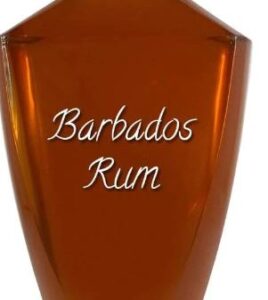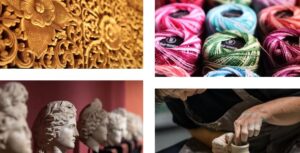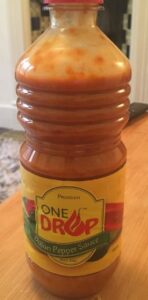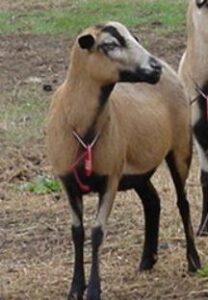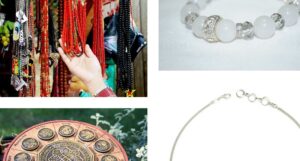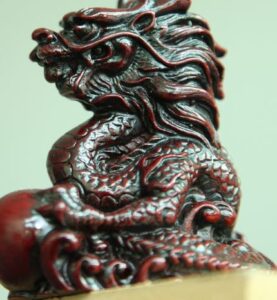What To Buy In Barbados | Top Souvenirs To Buy In Barbados

- By
- Aparna Patel
- |
- 26 May, 2023
- |
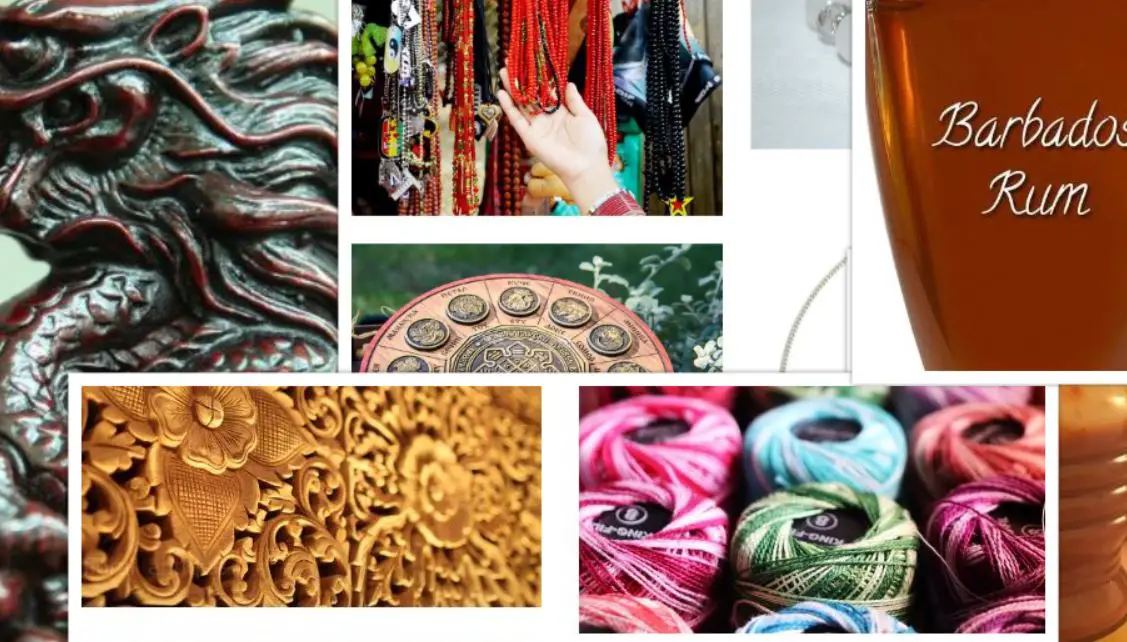
Welcome to our travel blog! If you’re planning a trip to the beautiful Caribbean island of Barbados, you’re in for a treat. Known for its pristine beaches, vibrant culture, and friendly locals, Barbados offers a plethora of experiences to indulge in. And what better way to commemorate your visit than by bringing home some authentic Barbadian souvenirs?
In this guide, we’ll take you on a journey through the top souvenirs to buy in Barbados, giving you a taste of the island’s rich heritage and artistic craftsmanship. Whether you’re seeking exquisite handmade crafts, flavorful culinary delights, or stylish fashion finds, we’ve got you covered. Get ready to immerse yourself in the vibrant colors and unique flavors of Barbados as we unveil the must-have treasures to enhance your memories of this enchanting island paradise.
10 Best Things To Buy In Barbados
When visiting Barbados, there are several unique items you can buy that showcase the island’s culture, craftsmanship, and flavors. Here are ten of the best things to buy in Barbados:
1.Rum:
Barbados is renowned for its rum production, and you can find a wide variety of high-quality rums on the island. Look for brands like Mount Gay, Foursquare, and Doorly’s, and consider taking a rum distillery tour to learn more about the production process.
Barbados is renowned for its production of rum, and buying rum in Barbados can be a delightful experience for rum enthusiasts. Here are some key points to consider when purchasing rum in Barbados:
- Visit Distilleries: Barbados is home to several world-famous rum distilleries, such as Mount Gay, Foursquare, and St. Nicholas Abbey. These distilleries offer tours and tastings, allowing you to learn about the rum-making process and sample a variety of rums. Visiting the distilleries is a great way to gain insight into the different flavors and styles of rum produced in Barbados.
- Rum Shops: Barbados has numerous rum shops scattered throughout the island. These local establishments offer a wide selection of rums, including popular local brands and international labels. Rum shops provide an authentic Bajan experience and are an excellent place to interact with locals while exploring the diverse rum offerings.
- Duty-Free Shopping: If you’re departing Barbados by air, you can take advantage of duty-free shopping at the airport. The Grantley Adams International Airport has duty-free stores where you can find a range of rums at discounted prices. Be sure to check the duty-free allowances and restrictions of your destination country to ensure compliance with customs regulations.
- Rum Brands: Barbados produces several renowned rum brands. Mount Gay, established in 1703, is one of the oldest and most famous rum producers in the world. Foursquare and St. Nicholas Abbey are other highly regarded distilleries in Barbados. Additionally, there are smaller boutique brands that offer unique and limited-edition rums, providing an opportunity to discover hidden gems.
- Types of Rum: Barbados produces a variety of rum styles, including white rum, golden rum, aged rum, and spiced rum. Each style has its own distinct flavor profile and can be enjoyed in different ways, whether sipped neat, mixed into c**ktails, or used in cooking.
- Packaging and Sizes: Rums in Barbados are typically available in various bottle sizes, ranging from small sampler bottles to larger formats. Some distilleries also offer limited-edition or specialty releases that come in unique packaging, making them great souvenirs or gifts.
Remember to check the legal limits for bringing alcohol back to your home country and any import regulations before purchasing rum in Barbados. Also, it’s advisable to pack your purchases carefully to prevent any breakage during transport. Enjoy your rum-shopping experience in Barbados!
2.Art and Crafts:
Barbados has a thriving arts and crafts scene, and you can find beautiful locally made pieces to bring home. Look for handmade pottery, wooden carvings, paintings, and textiles created by local artisans.
Barbados has a vibrant arts and crafts scene, offering a variety of unique and locally-made creations. If you’re interested in purchasing art and crafts in Barbados, here are some key points to consider:
- Local Markets and Craft Fairs: Local markets and craft fairs are excellent places to find a wide range of art and crafts in Barbados. The Pelican Craft Centre in Bridgetown, Chattel Village in Holetown, and the Holders Farmers’ Market are popular locations to explore. These venues often feature local artisans and vendors selling handmade items such as paintings, sculptures, pottery, jewelry, textiles, and woodcarvings. You can interact directly with the artists and artisans, learn about their craft, and choose from a diverse selection of unique pieces.
- Art Galleries: Barbados is home to several art galleries that showcase the works of local artists. These galleries offer an opportunity to view and purchase original paintings, sculptures, and other art forms. Some notable galleries include the Barbados Gallery of Art, Zemicon Gallery, and On The Wall Art Gallery. These establishments often exhibit a mix of traditional and contemporary artworks, providing a glimpse into the island’s artistic expression.
- Studio Visits: Some artists and artisans in Barbados have their own studios, which can be visited by appointment. This gives you a chance to see the artists at work and purchase pieces directly from them. It’s worth researching and contacting artists whose work you admire to inquire about studio visits.
- Souvenir Shops and Boutiques: Souvenir shops and boutiques across the island often carry a selection of locally-made crafts and artwork. While these establishments may have a smaller range compared to markets and galleries, they offer convenience and can be found in popular tourist areas. Look for shops that specialize in authentic Barbadian crafts and support local artisans.
- Art and Craft Festivals: Barbados hosts various art and craft festivals throughout the year, such as the Crop Over Festival and the Holders Season. These events celebrate local talent and provide opportunities to purchase art and crafts directly from the artists. Attending these festivals can be a memorable experience and a chance to engage with the creative community.
When purchasing art and crafts in Barbados, consider your personal preferences, budget, and the transportation logistics for safely transporting your purchases. Many art and craft items can be fragile, so it’s advisable to pack them securely or inquire about shipping options if needed. By supporting local artists and artisans, you not only acquire unique pieces but also contribute to the preservation of Barbados’ artistic heritage.
3.Bajan Hot Sauce:
Spice up your meals with Bajan hot sauce, a flavorful and fiery condiment made from scotch bonnet peppers, mustard, and other ingredients. The popular brands include Barbados Hot Sauce and Marie Sharp’s Bajan Pepper Sauce.
Bajan hot sauce, also known as Barbadian hot sauce, is a popular condiment in Barbados known for its fiery flavor. Here’s some information about Bajan hot sauce and where to find it in Barbados:
- Bajan Hot Sauce: Bajan hot sauce is typically made from a blend of scotch bonnet peppers, mustard, vinegar, onions, garlic, and various spices. It is known for its vibrant orange color and intense heat, which adds a spicy kick to dishes. Bajan hot sauce is a staple in Bajan cuisine and is often used to season local dishes like flying fish, cou-cou, and macaroni pie.
- Brands and Varieties: There are several brands of Bajan hot sauce available in Barbados, each with its own unique recipe and flavor profile. Some popular brands include Barbados Hot Pepper Sauce, Delish Bajan Hot Pepper Sauce, and Marie Sharp’s Bajan Hot Sauce. Each brand may offer different levels of heat, so you can choose according to your spice tolerance.
- Where to Find Bajan Hot Sauce: Bajan hot sauce is widely available throughout Barbados. You can find it in supermarkets, grocery stores, local markets, and specialty shops. Additionally, many souvenir shops and gift stores in tourist areas also sell Bajan hot sauce, making it a popular item for visitors to take home as a flavorful memento of their trip.
- Local Markets: Exploring local markets, such as the Cheapside Market in Bridgetown or the Oistins Fish Market, is a great way to immerse yourself in the local food culture and discover a wide range of Bajan hot sauces. These markets often have vendors selling homemade hot sauces, allowing you to sample and purchase from a diverse selection.
- Duty-Free Shopping: If you’re departing Barbados by air, you can also check the duty-free shops at the Grantley Adams International Airport. They may carry a selection of Bajan hot sauces, allowing you to grab some bottles before you leave the island.
When purchasing Bajan hot sauce, be sure to check the ingredients and heat level if you have any specific preferences or dietary restrictions. It’s also a good idea to pack the bottles securely to prevent leakage or breakage during transportation. Enjoy adding some Bajan heat to your dishes with this flavorful hot sauce!
4.Local Spices and Seasonings:
Bring home the flavors of Barbados by purchasing local spices and seasonings. Look for blends like Bajan seasoning, which typically includes a mix of herbs, spices, and aromatics.
Barbadian Blackbelly sheep are a breed of sheep native to Barbados and are known for their distinctive appearance and meat quality. If you’re interested in purchasing Barbadian Blackbelly sheep products in Barbados, here are some key points to consider:
- Blackbelly Sheep Meat: The meat from Barbadian Blackbelly sheep is highly regarded for its flavor and tenderness. It is commonly available in local markets, supermarkets, and butcher shops across Barbados. Look for cuts such as chops, ribs, leg of lamb, or ground lamb. These products are often labeled as “Barbadian Blackbelly lamb” or “Blackbelly sheep meat.” You can purchase fresh or frozen meat, depending on your preferences and needs.
- Specialty Shops and Farms: Some specialty shops and farms in Barbados focus on offering high-quality Blackbelly sheep products. These establishments may provide a wider range of options, including sausages, cured meats, and other value-added products made from Blackbelly sheep. Research local farms and specialty shops to identify locations that specialize in Blackbelly sheep products and visit them to explore their offerings.
- Culinary Experiences: Barbados is renowned for its culinary scene, and many restaurants and dining experiences feature local ingredients, including Blackbelly sheep meat. Consider dining at establishments that prioritize showcasing Barbadian cuisine, as they may have Blackbelly lamb dishes on their menus. This allows you to enjoy the unique flavors and cooking techniques associated with Blackbelly sheep meat.
- Farmers’ Markets: Farmers’ markets in Barbados are great places to discover locally sourced products, including Blackbelly sheep meat. The Holders Farmers’ Market in St. James and the Brighton Farmers’ Market in St. George are popular options. These markets often have vendors selling fresh, organic, and specialty meats, including Blackbelly sheep products. It’s an opportunity to interact with local farmers, learn about their practices, and select your preferred cuts.
- Online Shopping: Some farms or retailers in Barbados may offer online shopping options, allowing you to purchase Blackbelly sheep products from the comfort of your home. Check the websites or social media pages of local farms and retailers to see if they provide this service.
Remember to check local regulations and any restrictions on importing meat products if you plan to bring Blackbelly sheep products back to your home country. Additionally, ensure proper storage and transportation of perishable items to maintain their quality.
By seeking out Barbadian Blackbelly sheep products, you can experience the unique flavors and culinary traditions of Barbados while supporting local farmers and the island’s agricultural heritage.
5.Barbadian Blackbelly Sheep Products:
The Barbadian Blackbelly sheep is a unique breed native to the island. You can find products made from their wool, including rugs, blankets, and clothing items.
Barbadian Blackbelly sheep are a breed of sheep native to the Caribbean island of Barbados. They are well adapted to the warm and tropical climate of the region. The breed is known for its hardiness, resistance to parasites, and ability to thrive on low-quality forage.
Barbadian Blackbelly sheep are primarily raised for their meat, which is known for its excellent flavor and tenderness. The meat is lean and low in fat, making it a healthy option for consumers. It is often used in traditional Barbadian dishes such as lamb curry, roasted lamb, and stewed lamb.
In addition to meat, other products derived from Barbadian Blackbelly sheep include their wool and hides. The wool of these sheep is often used for craft purposes such as spinning and knitting. The hides can be tanned and used for various leather products.
Barbadian Blackbelly sheep are also sometimes raised for breeding purposes. They are valued for their genetic traits, such as their resistance to diseases and parasites. This makes them suitable for crossbreeding with other sheep breeds to improve overall flock health and productivity.
In Barbados, you can find various local markets and farms that offer Barbadian Blackbelly sheep products. These products may include fresh lamb meat, wool, and leather goods. The meat is often available at local butchers or can be purchased directly from farmers. Wool and woolen products can be found at craft stores or artisan markets.
Overall, Barbadian Blackbelly sheep products showcase the unique characteristics of this breed and contribute to the local economy and culinary traditions of Barbados.
6.Batik Clothing and Accessories:
Barbados is known for its batik, a fabric dyeing technique that creates intricate patterns. Look for clothing items, scarves, and accessories featuring vibrant and colorful batik designs.
7.Handmade Jewelry:
Barbados offers a wide selection of handcrafted jewelry, often made with precious and semi-precious stones. Look for unique pieces featuring coral, shell, turquoise, or local gemstones like the Bajan Green Heart.
Handmade jewelry in Barbados is a popular craft and art form that showcases the creativity and skill of local artisans. Barbados has a thriving jewelry industry, with talented artisans creating unique and beautiful pieces using various materials and techniques.
One of the significant aspects of handmade jewelry in Barbados is the use of locally sourced materials. Artisans often incorporate elements inspired by the natural beauty of the island, such as sea glass, coral, shells, and gemstones found in Barbados or the surrounding Caribbean region. These natural materials lend a distinct and authentic charm to the jewelry.
Barbadian artisans also utilize traditional jewelry-making techniques alongside modern methods to create their pieces. They may employ handcrafted metalwork, wire wrapping, beading, carving, and other intricate techniques to design and construct their jewelry. Each piece is carefully crafted with attention to detail, resulting in unique and one-of-a-kind creations.
The styles of handmade jewelry in Barbados vary widely, catering to different tastes and preferences. You can find a range of designs, from delicate and minimalist pieces to bold and statement-making jewelry. Some artisans draw inspiration from the island’s cultural heritage, incorporating elements of Barbadian history, folklore, and symbolism into their designs.
Barbados hosts various markets, craft fairs, and boutiques where you can find handmade jewelry. The Pelican Village Craft Centre in Bridgetown is a popular destination for local crafts, including jewelry. Additionally, art galleries and independent artisan shops throughout the island often feature handmade jewelry from Barbadian artists.
Purchasing handmade jewelry in Barbados not only allows you to own a unique and beautiful piece of wearable art but also supports the local artisans and contributes to the island’s vibrant arts and crafts community.
8.Mahogany Crafts:
Barbados is known for its mahogany wood, and you can find beautiful handmade crafts made from this rich and durable material. Look for items like bowls, sculptures, furniture, and decorative pieces.
Mahogany crafts in Barbados are highly regarded for their exquisite craftsmanship and the use of one of the island’s most prized natural resources, the mahogany tree. Mahogany has long been recognized for its durability, rich color, and beautiful grain, making it a sought-after material for furniture and crafts.
Barbadian artisans skillfully transform mahogany into various handcrafted items, showcasing the wood’s natural beauty and creating unique pieces. These crafts range from small decorative items to larger furniture pieces. Some of the common mahogany crafts found in Barbados include:
- Carvings and Sculptures: Mahogany’s dense and fine-grained nature makes it ideal for intricate carvings and sculptures. Artisans create beautiful figurines, animals, masks, and other decorative items using traditional carving techniques.
- Furniture: Mahogany furniture is highly regarded for its elegance, durability, and classic appeal. Craftsmen create tables, chairs, cabinets, bed frames, and other furniture pieces using mahogany wood. The furniture often showcases the wood’s natural color and grain through polished finishes.
- Jewelry Boxes and Trinkets: Mahogany’s rich color and smooth finish make it a popular choice for crafting jewelry boxes, keepsake boxes, and trinkets. These items are often adorned with decorative carvings, inlays, or brass accents, adding to their aesthetic appeal.
- Utensils and Kitchenware: Mahogany is occasionally used to create utensils and kitchenware. Craftsmen may carve cutting boards, serving trays, bowls, and other culinary items from the wood, showcasing its durability and natural warmth.
- Souvenirs and Gifts: Mahogany crafts make for popular souvenirs and gifts from Barbados. Keychains, coasters, magnets, and other small items are often made from mahogany and adorned with engraved or painted designs that represent the island’s culture and landmarks.
To purchase mahogany crafts in Barbados, you can visit local craft markets, artisan shops, and galleries throughout the island. Popular destinations include the Pelican Village Craft Centre in Bridgetown and various gift shops in tourist areas.
When purchasing mahogany crafts, it is essential to ensure they are sourced responsibly. Look for artisans and vendors who prioritize sustainable harvesting and use legally obtained mahogany to support the conservation of this valuable resource.
Mahogany crafts in Barbados not only showcase the skill and artistry of local craftsmen but also serve as cherished reminders of the island’s natural beauty and cultural heritage.
9.Local Food Products:
Bring home the flavors of Barbados by purchasing local food products. Look for items like Bajan spices, hot pepper sauces, rum cakes, local jams and jellies, and Bajan seasoning blends.
10.Souvenirs and Keepsakes:
Finally, don’t forget to pick up some Barbadian souvenirs and keepsakes. Look for items like keychains, magnets, postcards, and t-shirts featuring the island’s landmarks, flora, and fauna.
When shopping in Barbados, consider supporting local artisans and businesses to promote the island’s economy and cultural heritage.
Search Posts
Latest posts
-
4 Mar, 2024
How can I do a "broad" search for flights?
-
4 Mar, 2024
Why are there no seat belts on trains?
-
4 Mar, 2024
Can I accidentally miss the in-flight food?
